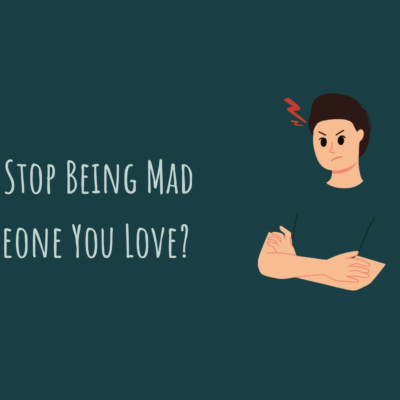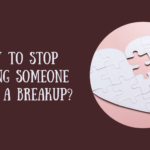How to Stop Being Mad at Someone You Love: In every close relationship, disagreements and conflicts are inevitable. Whether it’s a misunderstanding, a moment of hurtful words, or unmet expectations, even the strongest bonds can be tested. However, staying mad at someone you love for too long can strain your relationship and emotional well-being. Learning how to navigate these feelings and move toward forgiveness is key to maintaining a healthy and loving connection.
This article explores practical steps to stop being mad at someone you love and foster reconciliation.
Also Read:
- Feeling Lonely in Your Relationship? Here’s What You NEED to Know. (feel lonely in my relationship)
- Signs Your Soulmate Will Show Up Really Soon.
Why Do We Get Mad at People We Love?
Anger often arises in relationships because of emotional investment. When someone you love does something hurtful or disappointing, it can feel like a personal betrayal. Common triggers include:
- Unmet Expectations: Feeling let down by their actions or inactions.
- Miscommunication: Misunderstandings or unclear expressions of needs and feelings.
- Past Resentments: Lingering issues that resurface during conflicts.
Recognizing the root of your anger is the first step toward resolving it.
The Impact of Holding Onto Anger
Staying angry at someone you love can harm both you and the relationship. It may lead to:
- Emotional distance and strained communication.
- Increased stress and anxiety.
- Resentment that erodes trust and intimacy.
Letting go of anger doesn’t mean dismissing your feelings—it means addressing them in a way that promotes healing and growth.
Steps to Stop Being Mad at Someone You Love
1. Acknowledge Your Feelings
Start by identifying and accepting your anger. Denying or suppressing it can intensify your frustration over time. Instead, give yourself permission to feel angry and understand that it’s a natural response.
Take time to ask yourself:
- What exactly am I angry about?
- Are my feelings tied to the present situation, or are they influenced by past experiences?
Writing your thoughts in a journal can help clarify your emotions and prevent them from overwhelming you.
2. Take a Step Back
When emotions run high, it’s easy to react impulsively and say or do things you may regret. If possible, take a break from the situation to calm down and reflect.
- Practice Deep Breathing: Inhale deeply for four seconds, hold for four seconds, and exhale slowly. Repeat this until you feel more centered.
- Engage in a Calming Activity: Go for a walk, listen to music, or practice mindfulness to clear your mind.
This pause will help you approach the situation with a clearer perspective.
3. Consider Their Perspective
Empathy is a powerful tool for resolving anger. Try to understand the other person’s intentions and feelings. Ask yourself:
- Could they have been unaware of how their actions affected me?
- Are they dealing with their own struggles that might have influenced their behavior?
While this doesn’t excuse hurtful actions, it can help you see the situation in a more balanced way.
4. Communicate Your Feelings
Open and honest communication is essential for resolving conflicts. Once you’ve calmed down, talk to the person you’re upset with. Approach the conversation with these tips:
- Use “I” Statements: Focus on expressing your feelings without blaming them. For example, say, “I felt hurt when you didn’t call me back,” instead of, “You never care about my feelings.”
- Be Specific: Clearly explain what upset you and why. This helps avoid misunderstandings.
- Listen Actively: Allow the other person to share their perspective without interrupting or jumping to conclusions.
5. Separate Actions from Intentions
Sometimes, we interpret actions as being more malicious than they were intended. For example, if your partner forgot an important date, it might feel like they don’t care. However, it could simply be a case of forgetfulness rather than a lack of love.
Separating what they did from why they did it can help you address the situation more fairly.
6. Practice Forgiveness
Forgiveness doesn’t mean condoning bad behavior or forgetting what happened. Instead, it’s about freeing yourself from the burden of anger. Holding onto grudges only prolongs your pain and affects your emotional health.
To practice forgiveness:
- Acknowledge the hurt but choose to release it.
- Remind yourself of the person’s positive qualities and the value of your relationship.
- Focus on moving forward rather than dwelling on the past.
7. Set Boundaries if Needed
If the behavior that upset you is part of a recurring pattern, it’s important to set healthy boundaries. For instance, if your loved one often interrupts you, let them know how it makes you feel and ask them to give you space to speak.
Boundaries ensure that both parties understand each other’s needs and respect each other’s limits.
8. Seek Support if Necessary
Sometimes, conflicts can be deeply rooted or too complex to resolve on your own. In such cases, consider seeking support from:
- A Trusted Friend or Family Member: Talking to someone neutral can provide fresh insights.
- A Therapist or Counselor: Professional guidance can help you navigate emotions and improve communication.
9. Focus on the Bigger Picture
In the heat of the moment, it’s easy to lose sight of what truly matters. Reflect on your relationship as a whole:
- What do you love about this person?
- How does this conflict compare to the positive experiences you’ve shared?
Keeping the bigger picture in mind can make it easier to let go of anger and prioritize reconciliation.
Tips for Preventing Future Conflicts
- Communicate Regularly: Share your feelings and concerns openly to prevent misunderstandings.
- Practice Empathy: Make an effort to understand each other’s perspectives.
- Resolve Issues Early: Address small conflicts before they escalate into bigger problems.
- Show Appreciation: Regularly express gratitude and affection to strengthen your bond.
Conclusion
Being mad at someone you love is a natural part of any close relationship, but holding onto anger for too long can harm both you and the connection you share. By acknowledging your feelings, communicating openly, and practicing forgiveness, you can resolve conflicts and move forward together.
Remember, love is about understanding, patience, and growth. Learning to navigate challenges with compassion and empathy not only strengthens your relationship but also fosters personal growth and emotional resilience. In the end, it’s the love and connection you share that truly matters.








